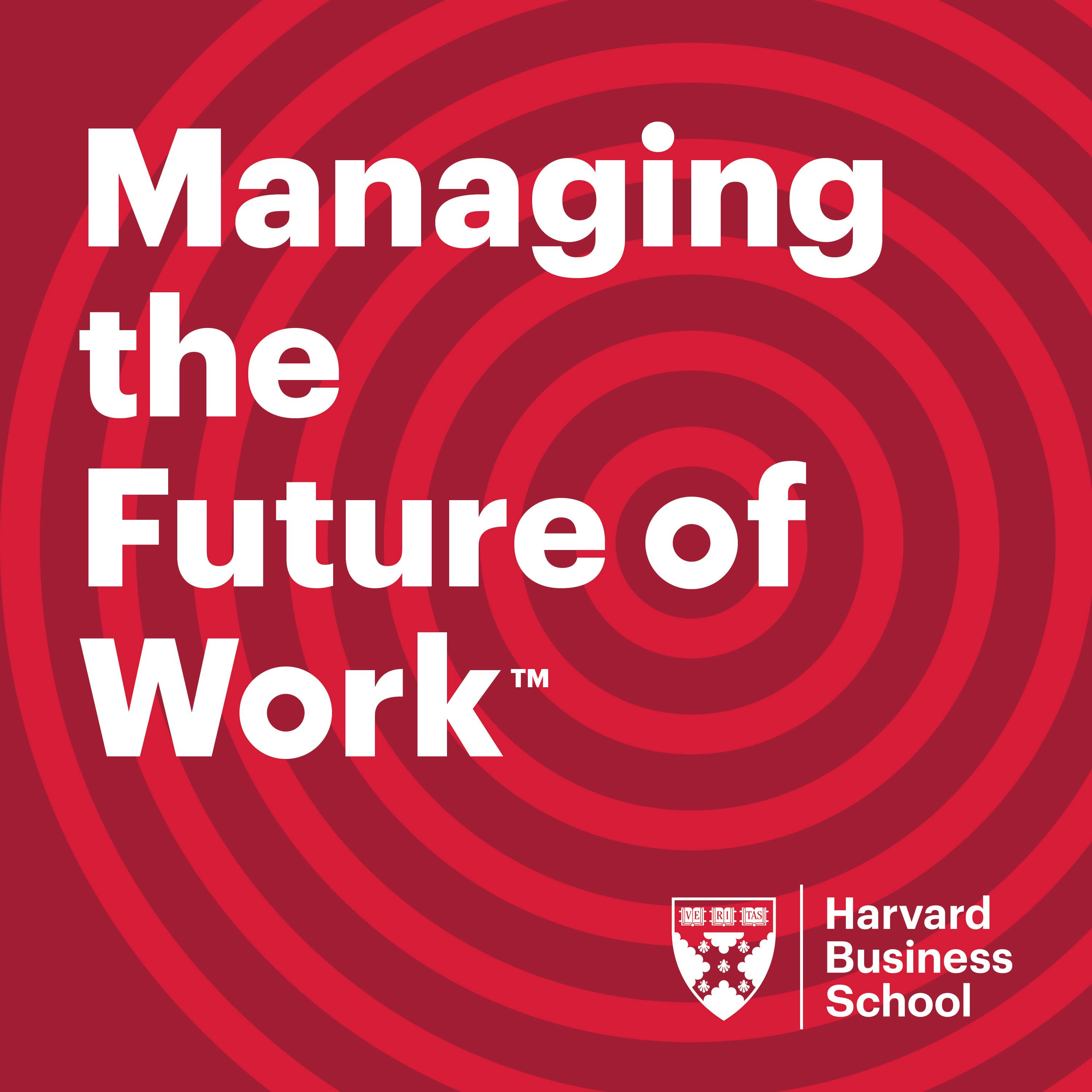

HBS Managing the Future of Work
Harvard Business School
Artificial intelligence. Robotics. The Gig Economy. Globalization. The world is changing at a dizzying pace in ways that will have a profound effect on the economy, jobs and the flow of talent. How will firms cope with the changes ahead and what steps do they need to take today? Each episode features faculty from the world’s leading business school interviewing CEOs, technologists and experts on the bleeding edge discussing how to survive and thrive by managing the future of work.
Episodes
Mentioned books

Oct 18, 2018 • 19min
How Vodafone’s CEO is using AI to transform the way the company works (rebroadcast)
In a re-release of our first episode, Vittorio Colao, who stepped-down as CEO of Vodafone in October of 2018, discusses the sweeping changes technology is bringing across his organization, from call centers to senior executives. If you like this episode, listen to HBS Cold Call to hear Bill Kerr discuss the HBS case on Vodafone’s transformation.

Oct 2, 2018 • 50min
Ep 14: The gift of global talent: Why talented people are the world’s most precious resource
In a special episode, Professor Bill Kerr talks with co-host Professor Joe Fuller about his new book on global talent. Talent, Bill argues, is the world’s most precious resource. It is the most important factor in driving innovation – critical in today’s knowledge economy. Though the US is the world leader in attracting global talent – a key driver of its phenomenal growth – the world around it is catching up. Can the US retain its edge or will it allow other countries to rise to the top?

Sep 20, 2018 • 45min
Ep 13: Work without borders: How digital platforms are transforming the way firms get things done
As the world gets smaller, the talent pools available to firms are getting much, much bigger. By bringing employers and workers together and solving key challenges of contracting at a distance, digital labor platforms are changing the way work is done. Professor Chris Stanton, who has studied them for over a decade, discusses the ins and outs of tapping into these labor sources, how workers on these marketplaces compete, and how platforms are disrupting management. Are physical offices a thing of the past?

Sep 6, 2018 • 22min
Ep 12: Why employers should care about care
As demographics change, caregiving responsibilities have become an increasingly integral part of employees' lives. Joe speaks with Care.com CEO Sheila Marcelo about how her experience of being “sandwiched” by care responsibilities led her to found her company. Caregiving benefits, she argues, are not only perks, but are critical to competitiveness for employers and the overall economy. And our current model is broken. Is Care.com the solution?

Aug 16, 2018 • 30min
Ep 11: High school to JP Morgan in seven seconds: How businesses gain an edge by providing ladders of opportunity
There is a deep chasm separating the millions of Americans with limited access to college degrees from professional life. Gerald Chertavian, founder and CEO of Year Up, describes how his organization steps into this void, erecting ladders of opportunity to well-paying jobs while supplying leading businesses like Microsoft and JP Morgan with talent that would otherwise go overlooked. Where will one of their graduates end up this fall? No spoilers here.

Jul 31, 2018 • 20min
Ep 10: Collaborate in the classroom, compete on the grid
As regional utilities across the country faced a silver tsunami of retiring workers, they came together as an industry to develop a pipeline of middle skills workers like linesmen and technicians. From identifying critical roles and competencies to developing curriculum, utilities relied on the Center for Energy Workforce Development (CEWD) to develop industry-wide solutions. Ann Randazzo, the head of the CEWD, says success lies in asking “what can we do better together than we can separately?”

Jul 17, 2018 • 21min
Ep 9: How firms are building strategy around AI
As businesses grapple with advancing artificial intelligence they must make strategic choices. Senior McKinsey Partner Scott Rutherford finds that the best companies ask: How can we delight customers? Which functions can we trust to the technology and how will employee roles evolve alongside? How do we invest in human capital? Where should we be located? How can we reorganize to become more competitive?

Jul 11, 2018 • 29min
Ep 8: What can businesses learn from the present crisis of trust in tech?
Professor Sandra Sucher, an HBS faculty member who has studied trust in business for over a decade, discusses “techlash.” With customers, employees, and governments reacting to transgressions by some of the world’s largest companies, the importance of trust is more evident now than ever. Sandra explains why businesses need our trust, how they violate it, and what they can do to recover.

Jun 29, 2018 • 17min
Ep 7: The CEO of ING Netherlands describes his bank’s agile “big bang”
As customers become more demanding, businesses must work fast to release new products and provide a high-quality customer experience. To keep up, ING took a radical approach one might expect from a Silicon Valley technology company, not a big bank. Bill speaks with the CEO of ING Netherlands, Vincent van den Boogert, about his company’s abrupt shift to operating as an agile organization. Is it, in his words: Brave, braver, or stupid?

Jun 22, 2018 • 21min
Ep 6: From hot dogs to helicopters, the Golden Triangle’s workforce transformation
Joe discusses the ins and outs of developing an advanced manufacturing talent pipeline in rural Mississippi with Macaulay Whitaker, the Chief Operating Officer of Golden Triangle Development LINK. She describes how companies like PACCAR, Steel Dynamics and Airbus Helicopters partner with the local education system to develop the talent they need while providing middle class jobs to the region. But the real challenge is: will the region be able to sustain its current pace of “uncomfortable growth”?


